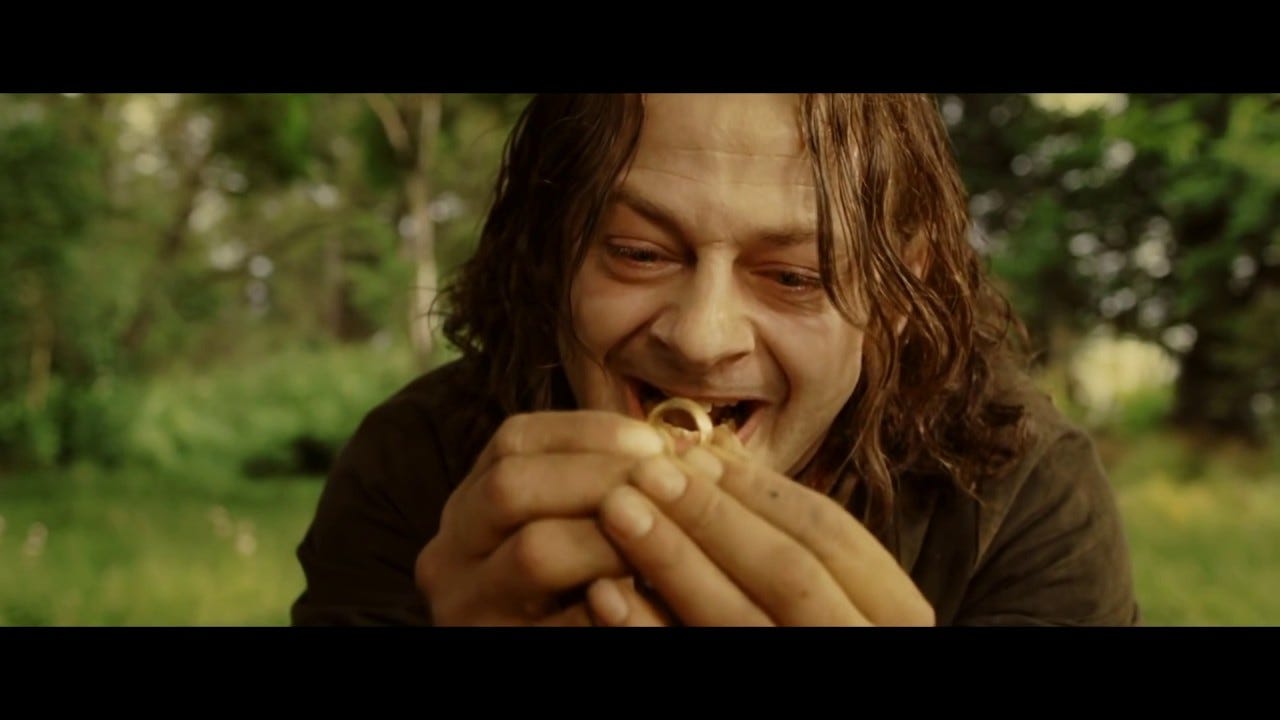The year that I graduated from university with my shiny “one ring to rule them all” engineering pinky ring, I took my bride of one year to my hometown where I had secured a job. Wonderful, right? Wrong… It was a boom year in the mining industry, and it took almost four months to find an apartment, so we lived with my parents. These would be the same parents who were decidedly unhappy with me for getting married before graduation and suspected that my wife was the source of my irrationality. By the end of the four months my parents had tossed me aside in preference to my wife and things went swimmingly ever after. Was it a God thing? He does have a sense of humour, so who knows.
The year that I spent working underground in my hometown was also a banner year in terms of mine accidents. I don’t think there is a correlation with my employment, but it has crossed my mind. Of the four fatalities, two were young fathers killed in an “own goal” blasting incident, one was a middle-aged father who was blinded by a sudden shot of sulphur dioxide and stumbled into an ore pass and the final was an older man who had a heart attack and was hit by his own train. I think I have told of my own stupidity that almost resulted in a double fatality. Underground mining is not for the faint of heart. But many of those who have worked underground can relate to the view of Confederate General Robert E Lee,
“It is well that war (or mining) is so terrible, otherwise we should grow too fond of it.”
Yeah… a bit of an overstatement.
When I was about ten, my best friend revealed to me the secrets of making gunpowder. Big deal you think. Ask your favourite chatbot how to make gunpowder and you will get detailed instructions with suggestions of where to buy the ingredients and recipe changes to increase the potency of the mix. But in 1963 there were no chatbots or encyclopedias or “self-help” books to describe the recipe. I was in awe of my friend, and we had a wonderful time lying to the hardware store lady about our need for saltpeter and sulphur. We made our bombs in the morning and blew up our toys imbedded into clay banks in the afternoon. Idyllic.
Perhaps those were the salient events that started me on the path towards mining. There is something beautiful about building one’s own bombs. It led me to author, in the late 1970s, the largest non-military blast in North America. I have forgotten how many millions of pounds of explosives to fracture how many tens of millions of tons of rock, but it was a thrill beyond compare. A “BOOM!” that was sustained for close to a minute with rocks and dust and stuff flying everywhere.
Speaking of things flying everywhere, it is mandatory that those who create the blast get to watch the blast. In my Yukon adventure we watched one blast from an elevated perch of several hundred feet. Horizontally we weren’t that far removed from the blast, but we had a bird’s eye view.
In hindsight, we might have known better. A couple of weeks earlier we had initiated a blast and, following protocol, sat under the belt coming out of the crusher. Within seconds of the blast, the rocks began pouring through the galvanized roof of the crusher building smashing on the concrete floor beside us. We were never in any danger, but it took some work to explain the damage to our management. But this stuff happens. One or two holes a bit overloaded with explosives and all kinds of fun things can happen.
Back to the blast in question. We dutifully “ooed” and “awwed” at the blast and carried on an animated play by play of the big rocks that got blown into the air and “wow that one is going really high”. As King Julian might say, “It is more fun that way!” As we followed the trajectories of the various big rocks (“donickers” to the initiated) one of my colleagues screamed for us to dive under the loading shovel standing nearby. We had so focused on the highflyers that we forgot about the medium altitude rocks which started pouring down on us just as we made refuge. By some complete fluke the rocks missed our pickup truck, but the shovel was not so fortunate. Let’s just say a few windows were smashed and we had another “come to Jesus” moment with management.
I was involved in a rather serious blasting “moment” during a short stint as construction manager for a highway being built through a new provincial park in Alberta. The park was being opened to host the 1988 Winter Olympics, and the area was named for the family of the then premier of Alberta. To say that my employer was the most haywire group of cowboys is to understate “haywire”. The fact that I was hired to manage the operation hints to that fact. As I recall just how haywire, it occurs to me that my next substack will be about “C-11 Industries”. Even now, I marvel at how many crazy situations crowded into my four months of employment with them.
On this occasion, the company had contracted out the blasting of a large outcrop of rock to “make straight the paths of the lord”. They dutifully blasted the rock and, instead of confining the blasted material, they managed to blow it across the trail that had been cleared to allow… you guessed it… our lord Peter Lougheed to pass in his inspection of the eponymously named park. We rushed a bulldozer to the site, but Mr. Lougheed was held up for the next 3 hours in a completely unscheduled delay.
While it is true that I got yelled at by my boss because he got yelled at by Mr. Lougheed’s people, it was not technically my fault. How was I to know that the blasters would screw up so royally? Besides it was funny. A bunch of us stood in the trees above the blast site and giggled as the frustrated politicians stomped back and forth while our bulldozer slowly scraped out a passable trail.
One last story from my first year of mining. I can’t claim it as my own, but it was told to me by a couple of friends who had the very enviable job of being two-thirds of the blasting research team. Their boss was an eccentric Englishman who had convinced management that he could reduce blasting costs across all the operations of the company if they would only build him a research facility and then allow him to manufacture explosives for all the mine sites. It sounded entirely plausible - at least until you met this Dr. Strangelove which meeting caused you to seriously doubt the mental capacity of the corporate executives. Not all his ideas were prima facia dumb but his ratio of “dumb” to “has potential” was certainly a step above mine.
The truth is I quite liked Dr. Strangelove as he was very funny and did not take himself at all seriously. I would have loved to have seen him at work in front of the Board of Directors. Every morning, I walked to work with his technical assistants and every morning they had another funny story of their antics from the previous shift. I have not confirmed this but was told that when the mine was shut down in the early 2000’s the Canadian military was brought in to find and destroy all the unexploded ordinance of their twenty-five-year career in the explosives manufacturing business.
This is perhaps the funniest story these guys told me.
The blasted rock that contains the minerals of interest is called “ore” and, at this mine, the ore was directed to underground crushers at the bottom of the mine through steep openings in the rock called “raises”. Sometimes the ore would get hung up in the raises and pouring water on it (see Ore pass hang-ups) would not budge the rock. In this situation miners would draw straws, and the loser would climb up the raise to set an explosive charge among the rocks that were magically hanging up above him. What would happen if the rocks suddenly came loose? He would die. It makes one shudder, but I have never heard of anyone dying from such an occurrence. Nevertheless, wild horses could never make me do that job.
The solution to the obvious safety issue, of course, was to blast remotely. And how might one blast remotely? Dr. Strangelove had just the solution. He applied to the Canadian military for the loan of a couple of mortars to shoot up at the stuck rocks. After the necessary paperwork was filled out the mortars and tube were delivered to the mine and brought to the scene of the crime when the next ore pass hang-up occurred. According to my two interlocutors, the event attracted a lot of attention even for their unusual antics. A wooden platform was constructed over the raise below the ore which had hung up and a few dozen spectators watched as the miner carried the tube and mortar onto the platform, set things up and set the mortar shell winging to its rocky destination. As the crowd pressed forward to listen for the ignition and the roar of the falling rocks, the people in the front were compressed towards the opening with no ability to back out.
The mortar bounced once or twice off the rocks with a tinny “tink…. tink…” followed by a silence, then a resumption of the “tink… tink…” except the sound was getting louder. My friends said that the realization of what had happened first hit the people closest to the platform who panicked, turned, and literally fought their way back from imminent danger. With tears in their eyes, they described the scene of the “Great Skedaddle” with bodies flattened by the fearful rampage of those who were larger and faster.
In the end the mortar hit the wooden platform and bounced unexploded out of the raise. I think they gave up on the mortar idea because I worked at the mine after this incident and never heard of mortars being used. That, however, didn’t stop Dr. Strangelove from losing one of the mortars and having to talk his way out of a prison sentence for that little lapse. I don’t think that last bit is true, but I laughed when they told me about it.



Yes it was very sad. The shift boss who fell into the hot muck chute was the one that rattled me most.
I do hope you and Kent didn't make the mistake of Jon Mikkelson and me and "taste" the saltpeter! Whatever the ingredients it certainly was fun. Send me Ray's email and I will twist his arm! lol Thanks Kim!
I feel like these blasting skills could have come in handy when The chair and staff were busy behind the scenes scheming to dismantle the board. You could have pulled a guy fox and expedited the process.